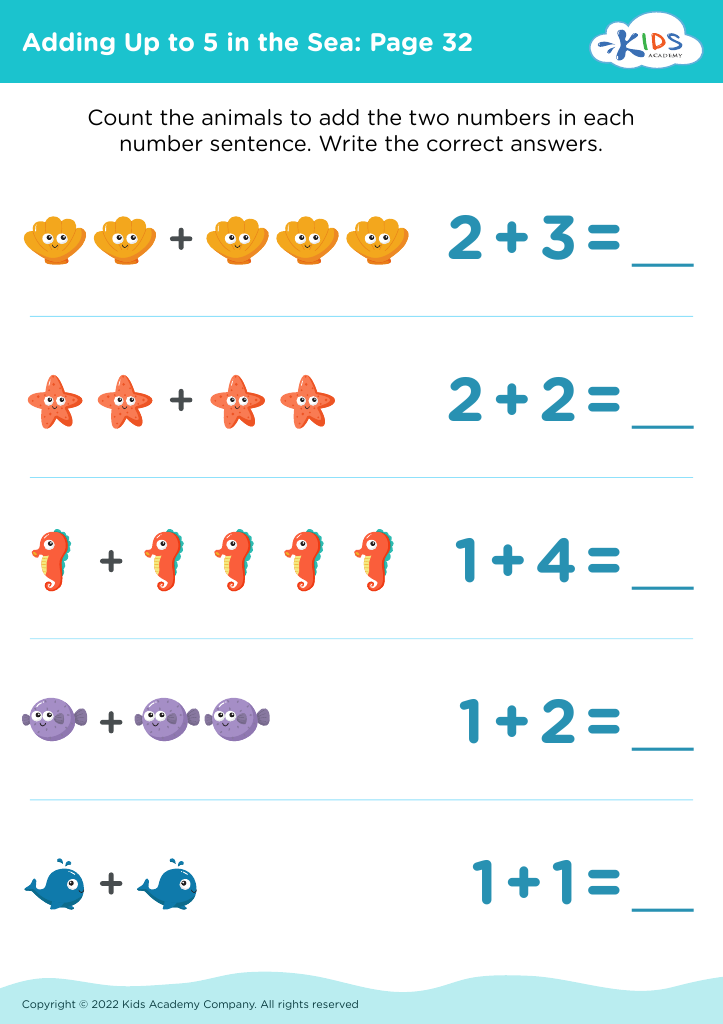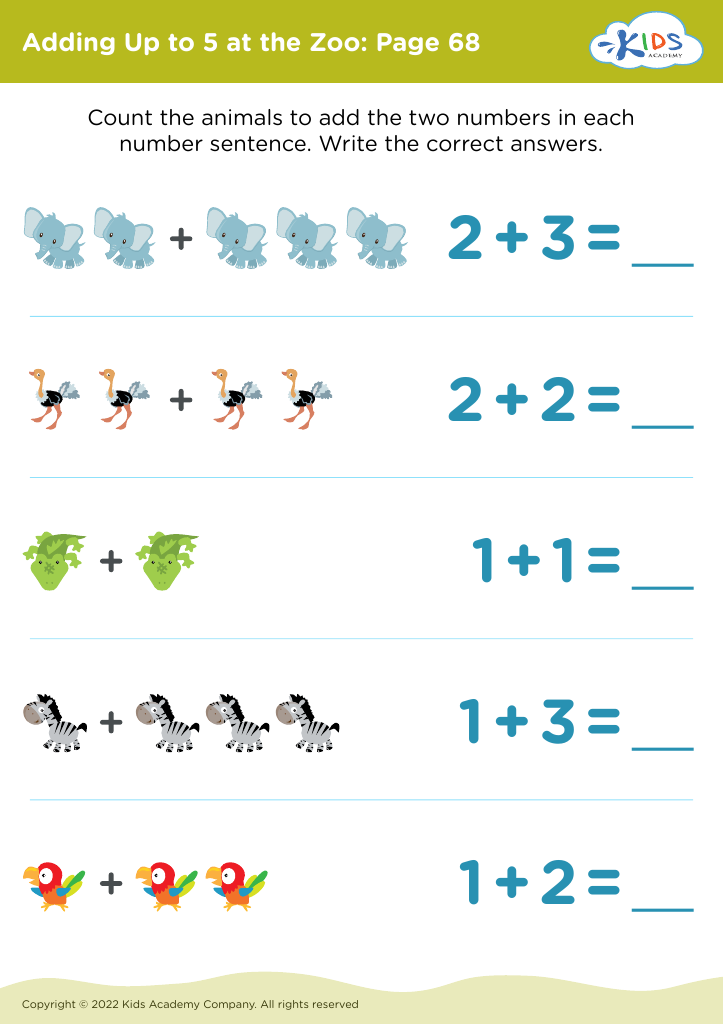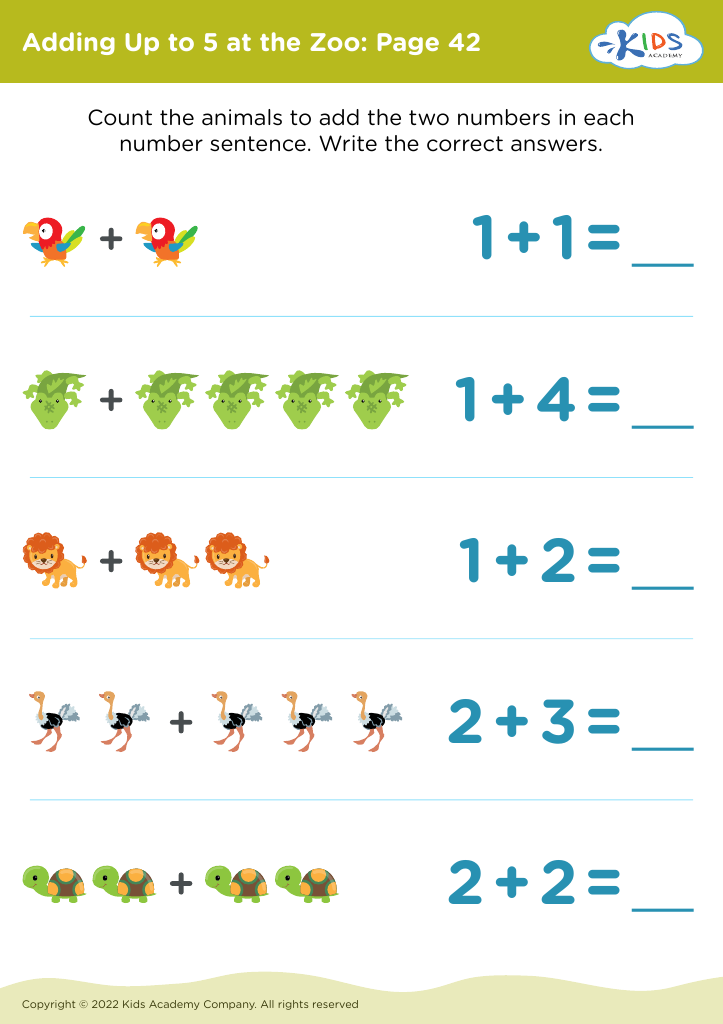Following instructions Addition Worksheets for Ages 5-6
5 filtered results
-
From - To
Welcome to our "Following Instructions Addition Worksheets for Ages 5-6" page designed to make math both fun and educational! These engaging worksheets help young learners develop fundamental addition skills while enhancing their ability to follow directions. Each activity presents age-appropriate addition problems, encouraging children to carefully read instructions and apply their math knowledge with confidence. Ideal for early grade classrooms or at-home learning, these resources provide a variety of colorful images and interactive scenarios to captivate young minds. Equip your child with essential math and listening skills today! Explore our collection and watch their confidence grow!
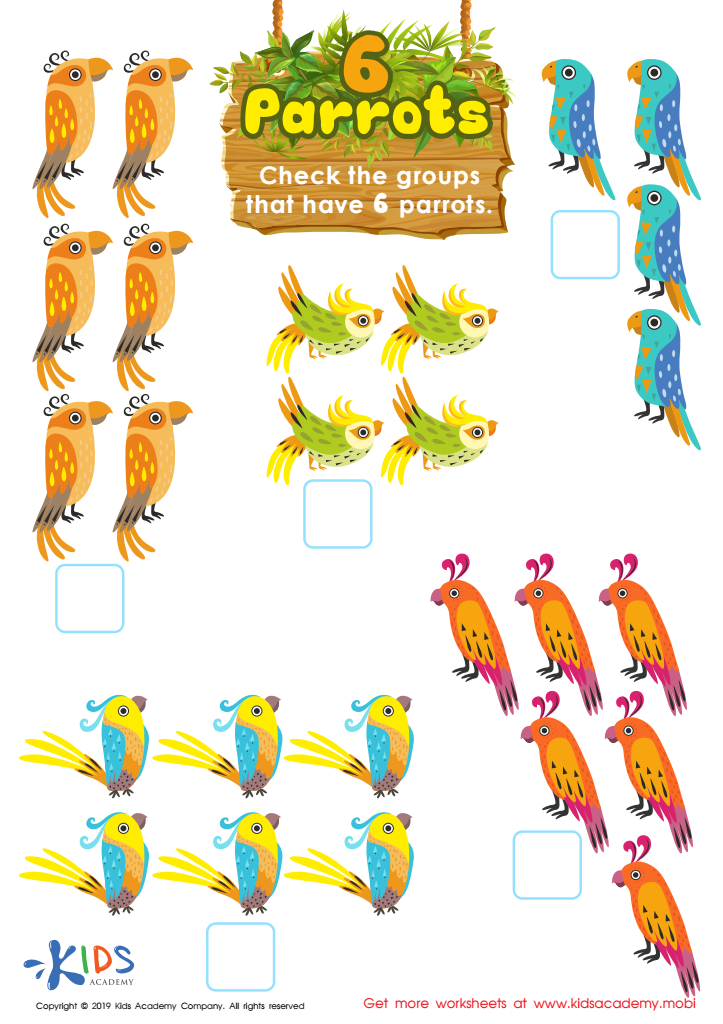

6 Parrots Worksheet
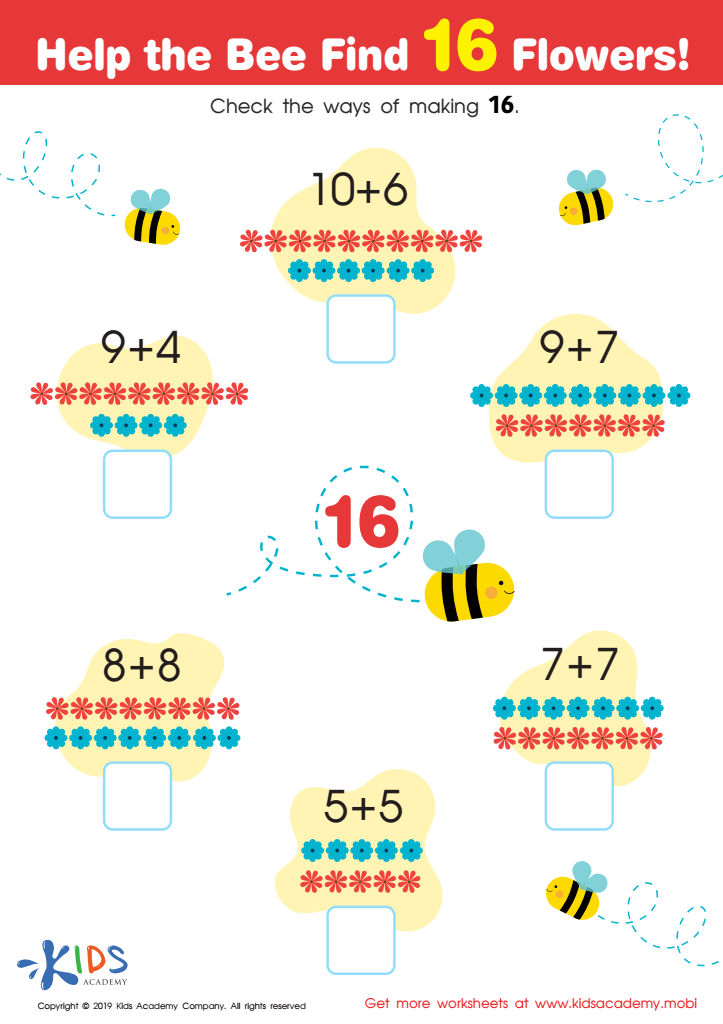

Help the Bee Find 16 Flowers Worksheet
Parents and teachers play a crucial role in a child's early education, and understanding the importance of following instructions in addition for ages 5-6 is vital for their academic and personal development. At this age, children are introduced to basic math concepts, and following instructions is foundational for learning addition. When children comprehend and execute instructions accurately, they develop essential skills such as listening, comprehension, and critical thinking.
Moreover, successful instruction adherence fosters problem-solving abilities. Children learn to approach challenges systematically, enhancing their confidence and independence in learning. When children practice following addition instructions, they begin to recognize patterns and build a strong mathematical foundation, essential for future learning.
Additionally, these early experiences reinforce social skills such as cooperation and patience, as kids often work in groups or pairs. This social interaction is vital for developing communication and teamwork skills, which are useful throughout life.
By emphasizing the significance of following instructions in early addition exercises, parents and teachers not only help children excel in math but also ultimately prepare them for a lifetime of learning, encouraging a positive attitude towards education and problem-solving. Encouraging these skills now can lead to a greater appreciation for learning in the future.
 Assign to My Students
Assign to My Students

